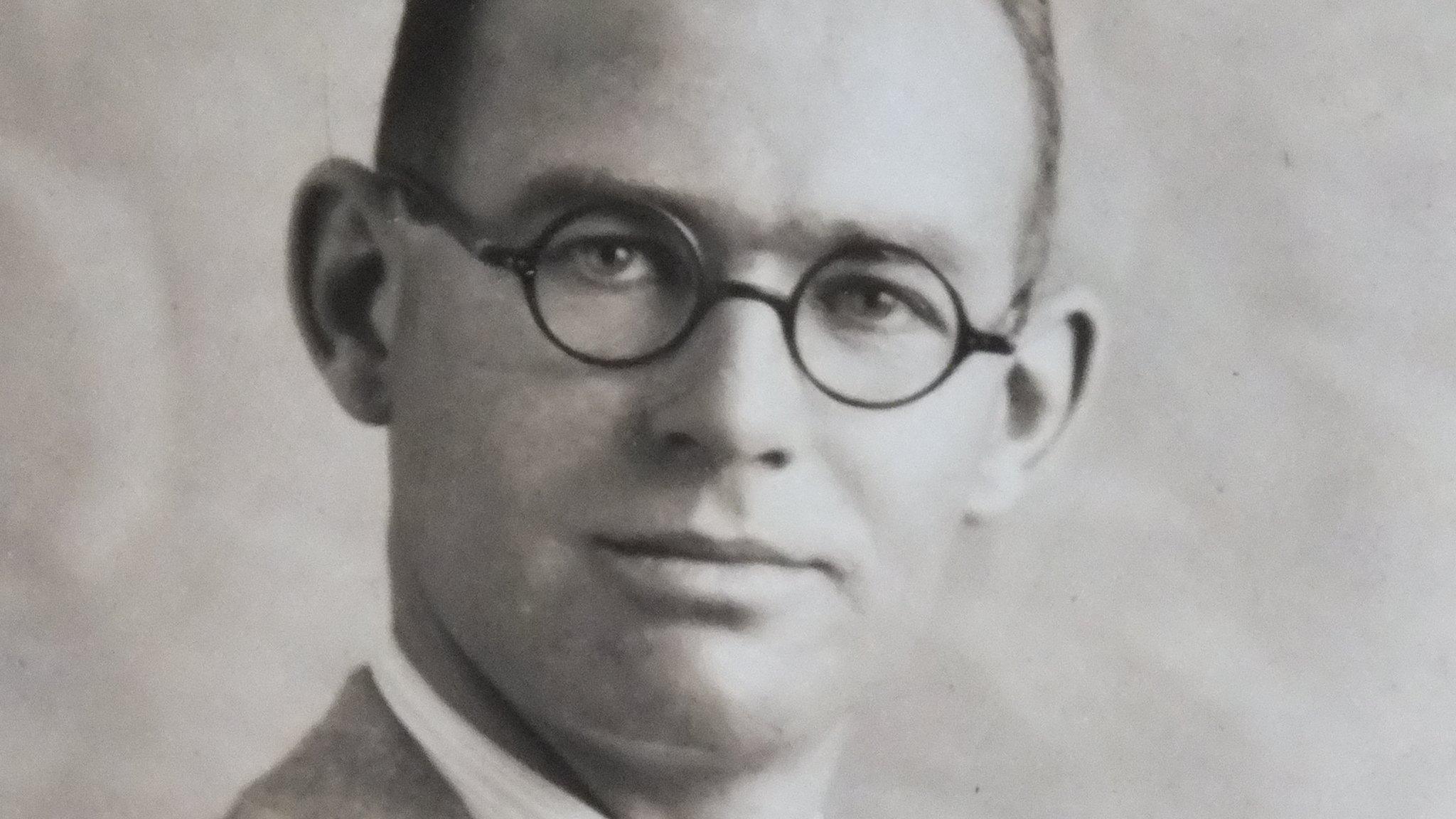Mr Jones film highlights Welsh 'unknown hero' Gareth Jones
- Published

James Norton as the Western Mail journalist Gareth Jones
A new film about Welsh journalist Gareth Jones aims to highlight Wales' "unknown hero", its director has said.
Mr Jones stars James Norton as the reporter exposing a man-made famine in 1930s Ukraine.
Polish director Agnieszka Holland, whose previous work has been Oscar nominated, said she felt "pride" at sharing more of his story.
The film includes graphic depictions of the famine and details Soviet efforts to suppress the truth.
It is inspired by the true story of Gareth Jones, from Barry in the Vale of Glamorgan.
He was a Western Mail journalist who managed to reach Ukraine to witness the horror of Stalin's imposed famine.
Jones was killed on a separate reporting mission to Inner Mongolia as he turned 30 years old.
His accurate account of famine in Ukraine was publicly rubbished by the New York Times journalist Walter Duranty, and the film shows how Jones struggled to convince others of the truth.
The famine, known as the Holodomor, was the man-made starvation of Soviet Ukraine in the early 1930s which killed millions of people.
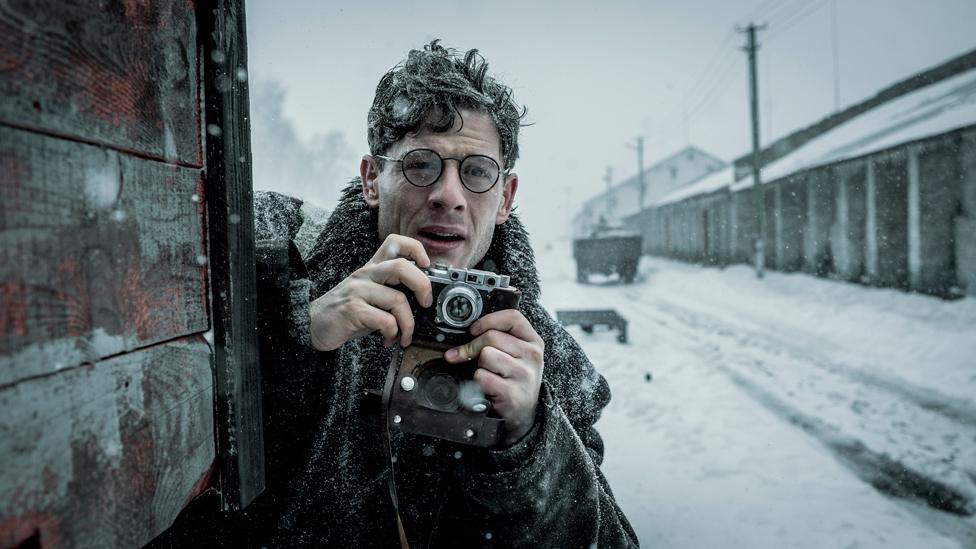
James Norton as Gareth Jones, who travelled to the Soviet Union and wrote pieces for the Western Mail in 1933
Ms Holland told BBC Wales: "I hope that this film will help to recognise him. I feel pride, being Polish, that I am introducing to Welsh people their unknown hero. At least a not very well-known hero.
"And he is somebody whose courage, intelligence and perseverance can be the model for many journalists," she said.
In the film, Jones can be seen making arrangements to travel to Moscow after foreseeing that Hitler was preparing for war in Europe.
Despite visiting Russia to try and interview Stalin about the threat from the Nazis, he ends up following a lead to Ukraine where he witnesses the dead and dying of the famine.
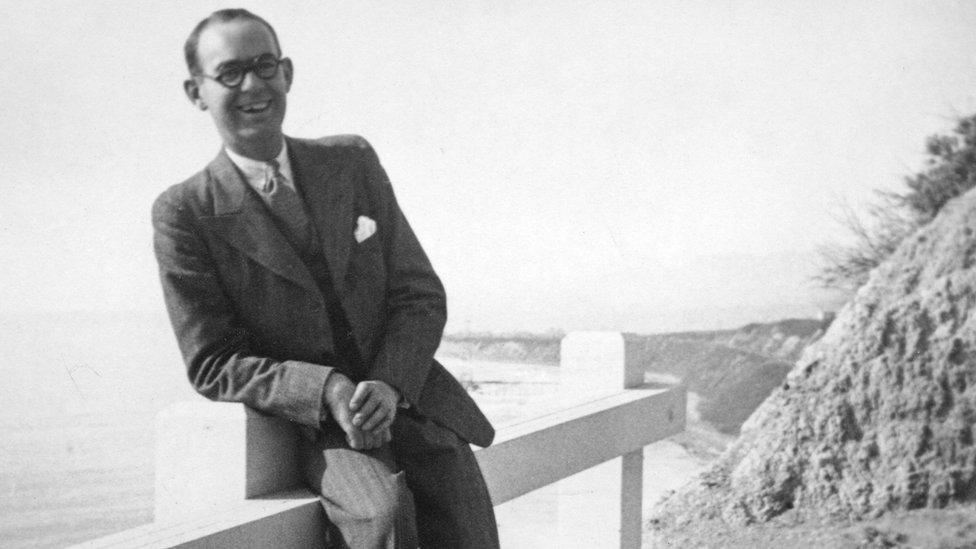
Gareth Jones pictured in the 1930s at Cold Knap, Barry
"He was curious, he was ambitious and wanted to figure out the truth," Ms Holland said.
"At some point, when he had seen the reality of the tragedy of millions of people dying of hunger, he became the messenger for those people.
"And he felt that his duty, whatever it meant, was to deliver this information and this truth to the entire world. That is what I want people to know about Gareth."
Jones's descendants have long tried to highlight his contribution to exposing the truth about Stalin's starvation of Ukraine.
His papers are held by the National Library of Wales in Aberystwyth, and he has been the subject of books and documentaries.
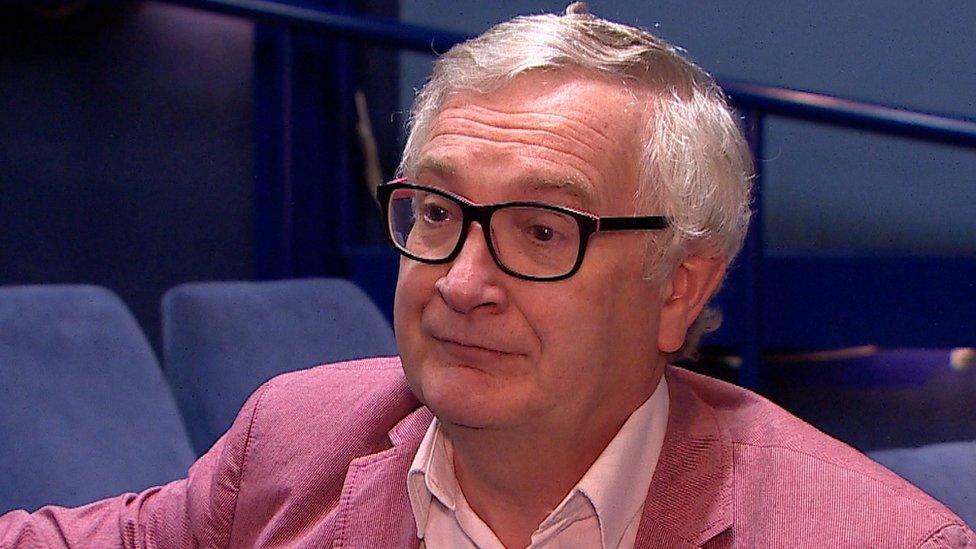
Graham Colley: "To see it portrayed, even if dramatically, is excellent because it brings the story forward"
His great-nephew, Graham Colley, has backed the film's production, telling BBC Wales: "I think it is really good.
"The story of Gareth Jones has been around for many years, it has been part of my family and part of my history.
"To see it portrayed, even if dramatically, is excellent because it brings the story forward, it makes him known and makes what he did known."
The film also stars The Crown actress Vanessa Kirby alongside Welsh actors Celyn Jones and Julian Lewis Jones.
As well as speaking with a delicate Welsh accent, James Norton speaks Welsh in a number of short scenes as he visits family in Wales.
While the film highlights Jones's Welsh roots and his courage as a journalist, Ms Holland hopes it also shows the dangers of propaganda and disinformation.
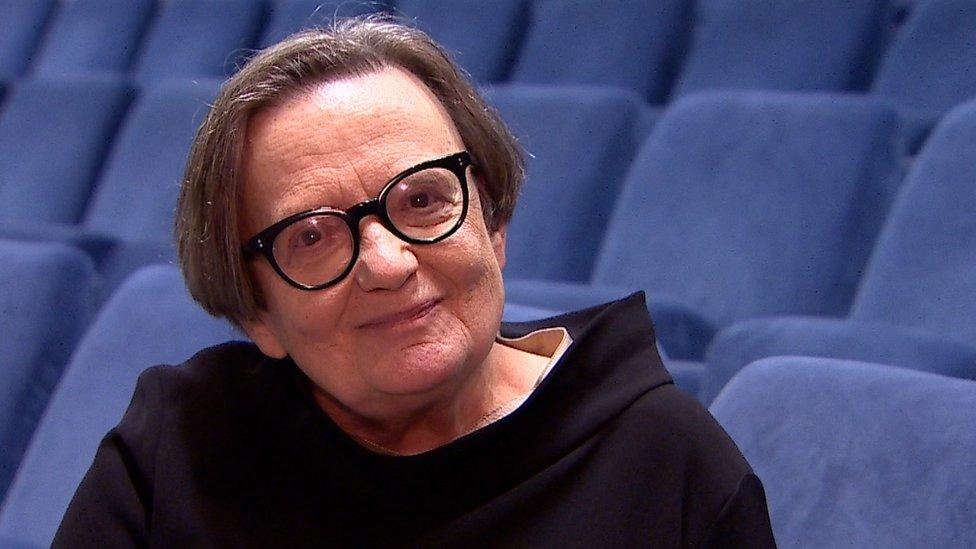
Agnieszka Holland believes Gareth Jones "would have gone on to far greater things" had he lived
She said: "I think that it has always happened, but sometimes it becomes a dangerous trick of the political situation, and a mechanism of the authoritarian, populist tendency to spread propaganda, and to use different propaganda tools like fake news and alternative realities to serve a political agenda. And it can be very dangerous."
Mr Colley agrees.
"I think over the past few years, 'fake news' has come to the fore. Gareth Jones told the truth, people decried it, they said it was fake news then, but it wasn't. It was the truth," he said.
"He did so much, and he had such a short life.
"If he had lived he would have gone on to far greater things. It wasn't to be. But he made his mark in that time.
"What he brought forward about the Holodomor, which a lot of people still don't know about, they will learn about now."
Mr Jones is released in some cinemas and on digital platforms on 7 February.
- Published30 January 2020

- Published27 October 2019
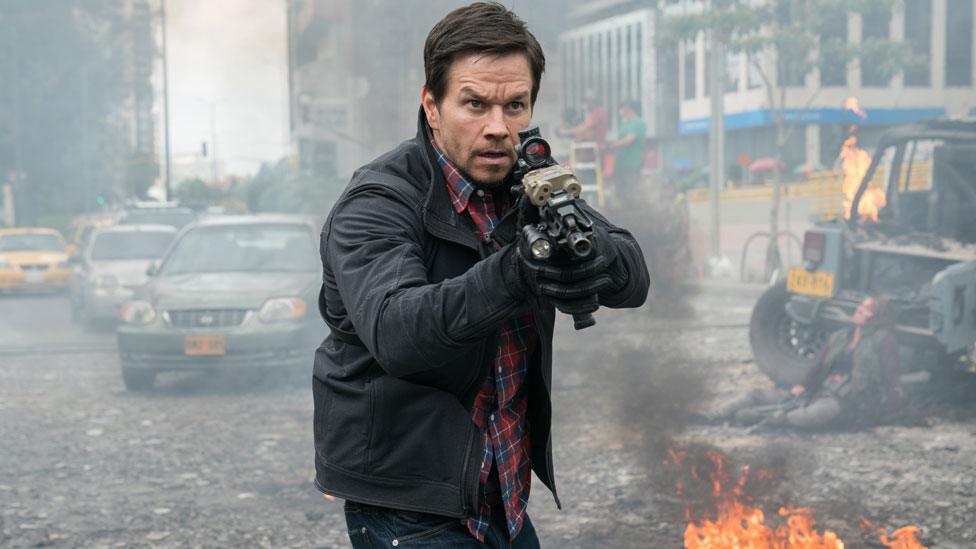
- Published5 July 2012
